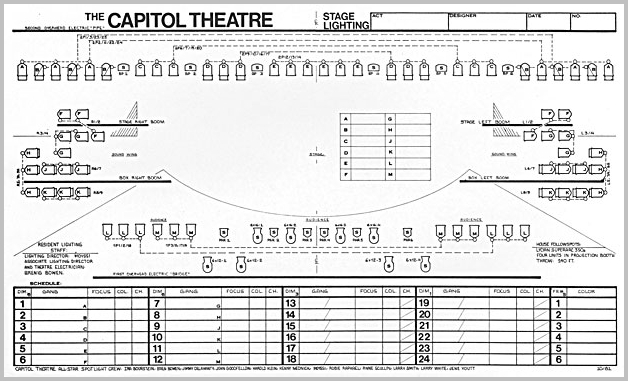

As well as making detailed notes about where singers enter and exit from, where scenery moves etc, they will also have an intimate sense of the director's and conductor's feel for the rhythm and pace of the performance. This backstage role is called the DSM (Deputy stage manager) and the DSM will have been in the rehearsal room from day one.

However, despite the amount of automation now involved, the activation or “calling” of each of these cues comes down to a person sat at the side of stage, following a detailed score with all the lighting cues marked out, and with a video reel of the conductor to keep on point with musical cues. Each lighting look, state or effect is stored as a “cue” in the console, and a full-scale opera can have a list of hundreds of lighting cues that make up the production. Lighting is pre-programmed and stored on a computerised console. What is something most people do not know about your job? From there I worked as a technician, production electrician and finally as the technical director of the Royal Academy Opera before becoming a freelance lighting designer. I never formally trained in lighting, instead leaving school and going straight in to the ‘above pub’ theatre scene working on comedy shows and musical revues. As a teenager I was also a keen musician: lighting gave me the platform to visually express the emotion and rhythm of music. There was no formal training or adult supervision: it was a great environment to learn what lights can do without someone enforcing the “correct way” of doing things. From about 12 I would operate the very basic lighting for my sister's amateur dramatic club, and in secondary school I joined the student-run stage crew for school plays and student band nights. I was exposed to theatre from a young age and was always fascinated by how all the technical elements of a show not only worked together to immerse the audience in an imaginary world, but also helped mould the tone and emotion of the story. To find out more, we spoke with lighting designer Jake Wiltshire, Honorary Associate of the Royal Academy of Music, whose recent lighting credits include productions for English National Opera, Welsh National Opera, the Royal Academy Opera, the Royal Northern College of Music, Bury Court Opera and many more. Good lighting can enhance a performance or completely change it, yet we don't often hear from those behind its creation. © Jake Wiltshire Among the many backstage jobs that have a huge impact on a performance but are not often talked about, is the essential role of the lighting designer.


 0 kommentar(er)
0 kommentar(er)
